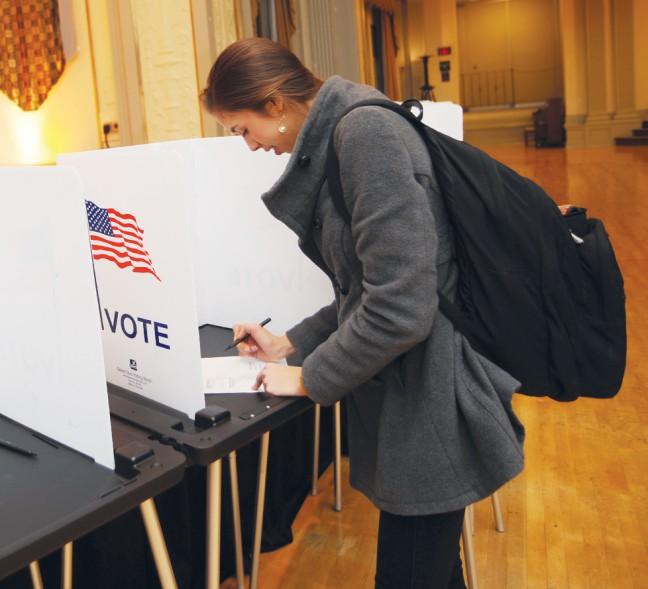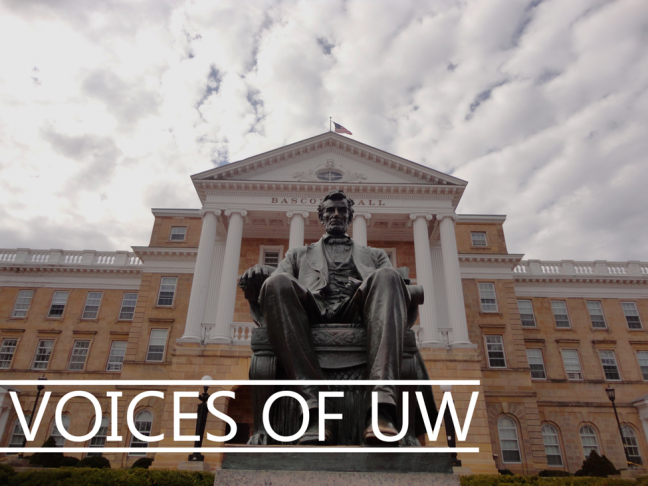In the editorial “The Father, The Son and The Holy $pirit” (Sept. 10), The Badger Herald Editorial Board urges the University of Wisconsin to file an appeal with the U.S. Supreme Court over the recent federal court decision in favor of Badger Catholic, allowing them to use segregated fees to fund religious events and materials. Not only is their argument not well-based in case law or common sense for that matter, it is outright wrong.
First, the board has a misconstrued notion that the fundamental principle of separation of church and state is threatened by this ruling. To look at this, we must first recognize that segregated fees are technically state funds, but only through a minor loophole created by the UW System as a way to further control what students can do with their own segregated fees. In August 2007, following the original Badger Catholic, then Roman Catholic Foundation, lawsuit, the Board of Regents’ Segregated Fees Review Committee made student segregated fees “earmarked” state funds. What the committee did was collect all student segregated fees and put them into the Wisconsin State Treasury before having them disbursed to the Associated Students of Madison for funding student organizations (see form F50). Because of their limited time spent in the treasury, the UW System ensured that segregated fees have technically become state funds, though by their very nature it is obvious this should not be the case.
Former Student Services Finance Committee Chair Alex Gallagher correctly stated in a December 2007 Isthmus article: “Until that point, ‘seg fees’ as state dollars had never been talked about. After the lawsuit, the idea of state dollars became the crucial point, and the university is framing the situation as, ‘This is the only definition, we have no choice.'” When it comes down to it, the reality is that segregated fees are the students’ money to be used for what the students wish when it comes to funding students organizations, and it was wrong of the UW System to exert any control over these discretionary funds. It is not the voice of the university that is funding these programs, but the voice of the students. Therefore, the issue of separation of church and state is based in mere technicality, and does not adhere to the spirit of the lawsuit and what the real question at hand should be, making it a moot point.
The second part of the editorial which greatly disturbs me is the statement “UW should not be required to fund religious activities that promote the veracity of only one religious point of view” (emphasis added). This is not a question of promoting ONLY Catholicism on campus. Badger Catholic and the religion they represent is only the vehicle for a great change for any religious organization on campus. While Badger Catholic is the only religious organization to ask for funding of this nature, nowhere in the court decision did the court give preferential treatment of one religious group over another when applying for funding. Instead, this decision can be used as a precedent to fund activities of other religious groups around campus – Jewish, Muslim and Christian alike (or any other that you may believe in).
Regardless of what statements I find unnerving or ill-contrived in the editorial, the bottom line is that case law and the university’s own actions require they permit this type of funding not just to Badger Catholic but to any religious group. In the lawsuit, the university’s main argument on appeal is that a public agency is entitled to withhold funds from religious speech. While the court held this to be true in certain cases, it ruled that the university’s current case does not apply as the funds are not under the university’s plenary control. In Southworth v. University of Wisconsin Board of Regents (2000), the university argues successfully that dissatisfied students could not reclaim their segregated fees because they were being used to operate a limited public forum in which the students, not the university, decided what is to be said.
So, applying that principle to the issue involving Badger Catholic, it is not the university but the students who are deciding what is to be said, meaning the university itself is not promoting one religion over another nor is it promoting any religious message whatsoever, only allowing students the private choice to fund religious speakers by their own criteria and control, not that of the state. As Chief Judge Easterbrook, who wrote the majority opinion of the Seventh Circuit Court of Appeals, wisely puts it: “University of Wisconsin is not propagating its own message; it has created a public forum where the students, not the University, decide what is to be said. And having created a public forum, the University must honor the private choice.”
Alex Brousseau ([email protected]) is a former news editor at The Badger Herald and a first-year law student.











